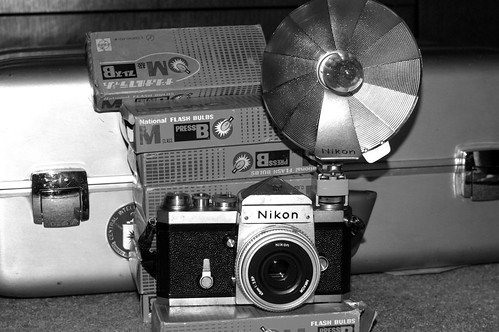What Old-Timey Photography Can Teach You About Writing
Let’s start with a universal question. Or, if you prefer, a cliché: What were you doing when you heard that an airplane had crashed into the twin towers?
Every generation has moments like this. The bombing of Pearl Harbor. The Kennedy assassination. The Challenger explosion. You’ve probably read dozens of articles that begin with this question. They are cliche for a reason.
Chances are you not only remember where you were and what you are doing, but that you remember it in exceptional detail. More vividly than whatever you were doing a week before that day or a week after. You have many memories like this crawling around your brain. Memories of moments of shock and intense emotional revelation.
Some are shared cultural experiences and some of them are personal. Maybe you have a similar memory of the moment you learned of the death of a loved one. Or the first time you bit down on a Twinkie, if you are a particularly intense Twinkie fan.
Experimental psychologists call these types of memories flashbulb memories, a term coined by Brown and Kulik in a 1977 study. They have certain features in common:
- They are unusually detailed, containing more small and inconsequential details than other memories.
- They often involve multiple senses.
- They have strong emotional intensity.
- They feel more real than other memories.
- They last in your mind longer with more clarity than other memories.
There are various theories about how flashbulb memories are formed and why they stand out so strongly. Emotional impact appears to be a major factor. Another is that they last longer because you revisit flashbulb memories and tell them to others over and over throughout your life.
As writers we all strive to create moments with our prose that stand out in our readers’ minds. A major reason that we put our words down on paper is so that they are remembered and discussed when we aren’t around, or after we are gone. As such, flashbulb memories have a lot to teach us about what kinds of things people remember most vividly.
When crafting a piece of writing, whether it be a fictional interchange between two lovers or a recounting of real-life drug addiction in Central Africa, the more your readers remember it the more of an impact it will have. It can be the most intense scene ever written, but if it is forgotten three minutes after it is read it might as well have been a listing of stamp prices.
Most of us try to make our scenes memorable by making them more emotionally impactful. This is important, but it isn’t enough. It has to have as many of the traits of flashbulb memories as possible so that when people try to remember it their brains can use the processes they already use when creating powerful memories.
That means important scenes need to have:
- Sensory detail. Our brains remember sounds and scents and the scratchy feeling of the wool sweater rubbing against our sweaty chest on a hot day. The richer the detail the easier the scene will be to remember. This doesn’t mean more detail. Just stronger detail.
- Little details. The more alive a scene feels the more the mechanics of memory have to latch on to. Two people can have a mundane conversation in a featureless room. But an important, life-changing conversation should take place in a room with a battered old desk and a night-light that looks like Oscar the Grouch.
- Emotional impact. Flashbulb memories are created when something happens that knocks you entirely out of your comfort zone. Nothing is the same after these moments, and you feel it.
- Re-tellability. That’s not a word, but it’s still important. If a reader goes over a scene over and over in their mind they will remember it. If they are so moved by the scene that they have to tell their friends about it, they will remember it, for the simple reason that repetition reinforces memory. Write and rewrite your most important scenes until they have that property. Easier said than done, but it’s vital.
Chances are there are scenes in books or movies that you remember with the kind of clarity normally reserved for important events in your life. Go back and look at those scenes. More likely than not they had most or all of the properties of flashbulb memories. Put these traits into your own writing and you won’t be easily forgotten.
Posted on January 28, 2015, in Writing and tagged brain, brain science, description, flashbulb, flashbulb memories, memorable writing, memory, neurology, Writing, writing tips. Bookmark the permalink. 1 Comment.

Reblogged this on Aspirations of Flight and commented:
Another excellent post to consider!
LikeLike